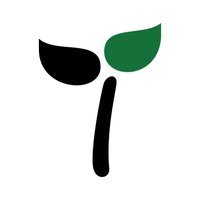The one who is alone, more isolated
- The Women's Network of the Rural Environment of Álava has carried out a mapping of people living alone in the country, with special attention to women. Containment has had a great influence in some cases.

In Álava, the population living alone in the last 18 years has risen by 106 per cent, a total of 42,908 people, and women account for more than 53 per cent of the people living alone, a total of 23,042. In the group of singles over 84 years of age, the predominance of women stands out: 78.2% of the people who live alone in these ages are women, almost 3,000 women.
On the other hand, in the Autonomous Community of the Basque Country, two Alavese municipalities stand out, as they are the most populous ones living alone: In Yécora, 62% of people living alone are 65 years of age or older and 24% are over 84 years of age, while in Moreda 59.3% are 65 years of age or older and 22% are over 84 years of age.
The Women's Network of the Rural Environment of Álava, in an agreement with the Provincial Council of Álava, has carried out in 2020 a "mapping of the sites" in the rural environment to analyze the resources and initiatives that are underway to help people who feel alone and to better understand the reality of loneliness. The result is a small sample of what happens in the territory, "and it has served, subjectively, to identify in some councils the different realities of the sunny conditions and to know the concerns of some people who live alone". In addition, good informal practices have been identified in the monitoring of unwanted people and intervention proposals have been defined in relation to existing resources at institutional and socio-economic level.
Women win
To complete the mapping, we interviewed fourteen people living alone in 22 councils of Álava, at least one per group: eleven telephone interviews and three face-to-face interviews. ELEVEN women and three men have been interviewed in the context of interviews with the media. In addition, between November and December last year they met in three groups, in Zuia, Vitoria-Gasteiz and Apoyo, to reflect on the responses received at the meeting. There has also been talk with Caritas, the Red Cross and the Telephone of Hope, who work in this field, to learn about their experiences and data.
However, they have made it clear that research goes beyond statistics: "In this project, more important than the quantitative aspect is to analyze the qualitative aspect, that is, why these people feel alone: because they are alone or, what is harder, they are very "exhausted" (with a great burden of care) and without a life project."
In all councils there are more women alone than men, because they are more percentage and more autonomous. ‘Single, divorced and widowed people are able to be self-employed and take care of themselves, while in the case of men, most men who are left alone live with their family members or in nursing homes, even if they can take care of themselves’.
The Women's Network of the Rural Environment of Álava has analyzed many aspects that affect loneliness: care, situation of public services, whether or not it helps the life of the locality, relationships, participation, etc. In addition, the study was carried out in collaboration with Covid-19, so a special section is dedicated to the consequences of the virus. "The measures taken to deal with the health emergency have affected the lives of all people. Apparently, some measures restricting mobility in the rural environment have not been noticed, as they can go out to the garden, to the garden, to walk... However, the consequences have been significant, especially for those who left their homes and related to people from other peoples".
Containment damage
The interviewees have missed affections, hugs, kisses, being with loved ones, relating with other people... This has been very hard for some women: "I've felt alone. I would go out and buy. From the window, I was reading and looking at people. My daughters couldn't come to see me. I have missed the hugs and kisses of my daughters and grandchildren. I got less heat and contact. It's very hard to be just three months at home. Sometimes I wanted to throw her out the window.
The cessation of some activities in the first confinement has also been a great vacuum for many women: "Being completely alone, I've lived with anxiety and restlessness. Before I moved more, I did a lot of activities. At the moment, nothing can be done. I've gone from being very active to doing nothing. I can't even see my daughters.
The interviewees have lacking, among other things, clear information about the coronavirus, and believe that the media have created "fear" and "misinformation". A number of friends have decided to stop watching television or listening to radio.
In addition to the factors that influence loneliness, the mapping has analyzed the existing "personal and public" resources to cope with this situation, and the research, directed by Mentxu Ramilo, has proposed several alternatives. He insisted that these are requests that should be adapted according to the different circumstances: "Behind solitude there are different casuistics. Therefore, different responses are needed to intervene in function of the demand, in a common, open and flexible framework, depending on each reality and necessity, articulating different agents of the territory”.























